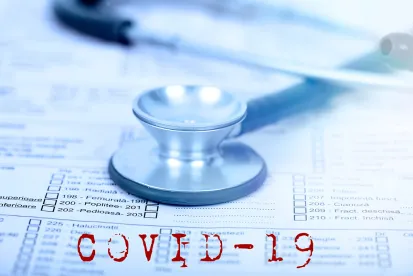A legislative proposal to amend the Temporary Act COVID-19 was adopted by the Dutch parliament on 12 November 2020, and adopted by the Dutch Senate on 24 November 2020. The proposal (the COVID-19 Amendment Act) will enter into force shortly and remain in effect until 1 February 2021. This GT Alert summarizes the measures included in COVID-19 Amendment Act Chapter 2 (Temporary measures for the stay on recovery measures COVID-19).
The COVID-19 Amendment Act provides (in Chapter 2) for the possibility of the debtor requesting that the courts, in connection with the pandemic:
-
suspend the application for bankruptcy by a creditor;
-
suspend other recovery measures taken by a creditor; and
-
grant the debtor a temporary stay of payments.
1. Suspension of a request for bankruptcy by a creditor.
Conditions: In the event a creditor applies for bankruptcy of its debtor, the debtor may request that the court suspend the request for a period of two months (which may be extended upon request). A suspension may be requested if the following (cumulative) conditions are met:
-
The inability to fulfil its payment obligations is due to a temporary lack in liquidity.
-
The lack of liquidity is mainly or primarily caused by the pandemic or is the result of the temporary measures taken by the Dutch government in light of the pandemic, as a result of which the debtor has not been able to operate its business.
-
Prior to the pandemic or the implementation of the temporary measures the debtor was not in financial dire straits.
-
The business of the debtor has earning capacity and a future outlook.
-
The creditor that applied for the bankruptcy of the debtor is not substantially and unreasonably prejudiced by the suspension.
-
The court will review the request for suspension summarily, meaning that the debtor will have to provide reasons for its request supported by documentation that shows that the circumstances of the debtor justify the suspension.
-
A request for suspension cannot be made if the Dutch Tax Authorities apply for the bankruptcy of the debtor.
Consequences: If the court grants the suspension, the consequences are as follows:
-
The debtor is granted a moratorium (two months with a possibility to extend) in relation to the debt or debts owed to the creditor who applied for bankruptcy. No general moratorium is granted.
-
The applying creditor may not terminate, suspend or rescind the contract with the debtor during the term of suspension.
-
The debtor may request the court to determine that the creditor that applied for the debtor’s bankruptcy may not enforce any security rights over assets of the debtor without court approval.
-
The debts owed to other creditors that arose prior to the application of bankruptcy may only be paid by the debtor if there is sufficient justification.
-
The debtor must be able to pay new debts or debts which become due and payable (like rent) after the suspension of the request for bankruptcy to the relevant creditor (i.e., the business of the debtor must be viable).
-
The fact that a suspension of the bankruptcy request has been granted does not change anything in respect of the due and payable character of a debt or in the ranking of creditors.
2. Limitation of other recovery measures.
Conditions: A debtor may request the provisional judge to terminate or suspend an attachment or an execution-sale (as a result of a forced sale of collateral or the enforcement of security rights). Such termination or suspension which will be granted by the court, if the (cumulative) conditions set out under (i) through to (vii) of paragraph 1(a) of this alert are met and provided that the debtor can credibly establish that:
-
COVID-19 or the temporary measures taken by the Dutch government to curtail the pandemic has caused the debtor’s temporary inability to continue paying its debts; and
-
the temporary measure is required to be able to continue its business.
-
This request may also be made by the debtor in the event a creditor aims to recover goods held by the debtor but owned by the creditor (for instance in case of a retention of title).
Aim of the measure: The aim of this measure is to protect the debtor from an attachment or execution sale that may undermine the continuity of the debtor’s business.
3. Temporary amendments of articles 47 (nullification of a due and payable claim) and 54 (set off with a purchased claim or assumed debt) Dutch Bankruptcy Act.
Background: Article 47 Dutch Bankruptcy Act provides that a bankruptcy trustee can nullify and claw back a payment made on a due and payable debt if the creditor receiving the payment had at the time the payment was made knowledge of the application for bankruptcy, or if the payment was made as a result of collusion between the creditor and the debtor with the aim of prejudicing other creditors.
Temporary measure: The COVID-19 Amendment Act provides that, in the event the suspension period did not have the desired result and the debtor is declared bankrupt at the end of the suspension period, the bankruptcy trustee cannot nullify and claw back a payment on a due and payable claim that was made during the suspension period to a creditor, where the claw back is solely based on the fact that the creditor had knowledge of the application for bankruptcy. The application of article 47 Dutch Bankruptcy Act is in that respect temporarily suspended.
Background: Article 54 Dutch Bankruptcy Act provides that where a person has acquired, prior to the declaration of bankruptcy, a claim against the bankrupt debtor from a third party, he is not entitled to effect a set-off against a debt payable by that person to the bankrupt debtor, if he did not acquire this claim in good faith; the same applies in the event a person has assumed, prior to the declaration of bankruptcy, a debt payable to the bankrupt debtor from a third person whilst not acting in good faith at the time of the debt assumption. Pursuant to case law this provision also applies to automatic settlements within a current account relationship between a bank and its customer. Such automatic settlement is avoided if the current account is credited at a time when the bank was no longer acting in good faith.
Temporary measure: The COVID-19 Amendment Act also limits the application of article 54 Dutch Bankruptcy Act. In the event the set-off (i) was effected during the suspension period, (ii) was effected in connection with a financing of the continuation of the business of the debtor and (iii) did not limit such financing, then the creditor effecting the set-off is deemed to act in good faith. The aim of this measure is mainly to allow the debtor to continue using a current account facility during the suspension period, without the bank having to fear an avoidance of the automatic settlement within such current account relationship in the event the debtor, despite the relief granted by the court, is declared bankrupt at the end of the suspension period.
* This GT Alert is limited to non-U.S. matters and law.



 />i
/>i

